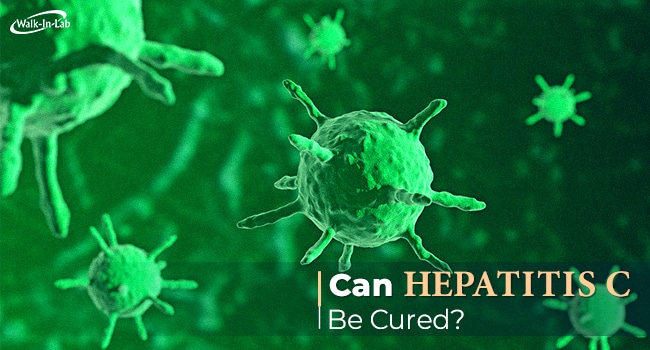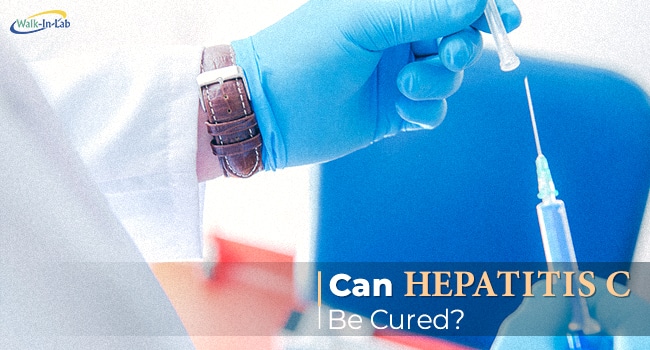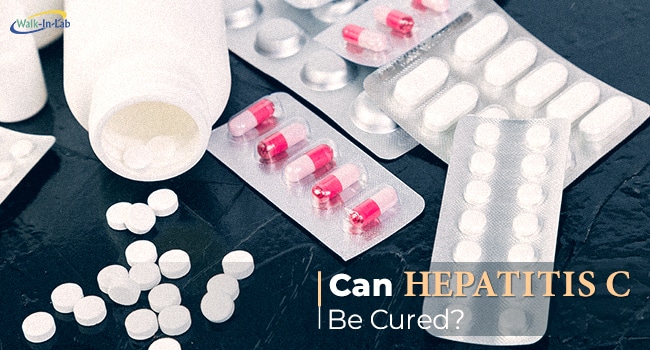Before we actually answer the question, let us first discuss what Hepatitis C is all about. Hepatitis C is a liver infection caused by the Hepatitis C Virus (HCV). About 3.8 million people in the US suffers from this disease.
HCV affects people in various ways and has several stages. First is the incubation period or the time between the first exposure to the start of the disease. Second is Acute Hepatitis C or a short-term illness that lasts for the first six months after the virus enters your body. Sometimes, the virus clears out on their own. Third is the Chronic Hepatitis C. If your body doesn’t get rid of the virus for the first six months, it becomes a long-term infection. This can lead to serious health problems like liver cirrhosis or cancer. Fourth is Cirrhosis. This disease leads to inflammation which replaces your healthy liver cells with scar tissue. It usually takes years to develop. Last is liver cancer. Cirrhosis makes liver cancer more likely. Now that we know the stages of HCV, let’s talk about the symptoms and whether or not it can be cured.
Most people with acute Hepatitis C do not experience any symptoms or show any sign of infection; and if HCV symptoms do occur, they usually appear within two weeks to six months after being exposed to the virus. Some of the symptoms are generally mild and flu-like. These include feeling very tired, having sore muscles, experiencing joint pain, suffering from fever, feeling nauseous, having poo appetite, experiencing stomach pain, itchiness of the skin, and having dark urine. Since most people with acute Hepatitis C go on to develop chronic Hepatitis C and still show no symptom, it is fairly common to have the infection for 15 years or longer before being diagnosed. Now that we know the signs, you may be wondering how it gets transmitted or spread.
Hepatitis C is transmitted when the blood of an infected person enters the bloodstream of someone who is not infected. This gets transmitted by sharing needles or other equipment to inject drugs. It can also spread through intercourse, but the risk is low for monogamous heterosexual couples. The risk is relatively higher with unprotected anal sex between males. It is recommended to routinely use condoms to decrease the risk. All people with multiple sex partners should use condoms to reduce the risk of getting Hepatitis C. It can also be transmitted if there is a breakdown in the skin or lining of the mouth. Therefore, sharing of toothbrushes, razor blades and nail clippers is not recommended. Though HCV can be transmitted, it is not contagious like the common cold. One cannot get nor give HCV by kissing, hugging, holding hands, casual contact, sneezing, sharing food or drink, coughing, sharing eating utensils, and breastfeeding (unless nipples are cracked and bleeding).

Going back to the main question in this article – Can Hepatitis C be cured? Unfortunately, the answer is no. Unlike Hepatitis A and B, there is no vaccine to prevent Hepatitis C, but there is research being done to develop one. Nonetheless, options for managing symptoms are available and you may speak to your healthcare provider. For acute hepatitis C, there is no recommended treatment for the same except by doing check-ups and considering treatment if the infection remains. For Chronic HCV, the treatments have gotten much better. Since 2010, enormous progress has been made in the treatment of Chronic HCV. Direct-acting antivirals (DAAs) are pills that act on the virus itself to eradicate it from the body. Unlike older medicines like interferon injections which work by stimulating an immune response, these treatments are very effective and can achieve cure rates of over 90%. In most situations now, there is no need for interferon, which was responsible for many of the side effects previously associated with HCV treatment. The new treatment combinations require shorter treatment durations (between 8 to 24 weeks), have reduced side effects and appear to be effective at all stages of the disease.
Since this is fairly new, these pills remain very expensive. Your primary care physician may refer you to a specialist to determine whether you are eligible for treatment. A specialist will help you decide which drug therapy is best for you based on the severity of your liver disease, your virus genotype and whether or not you have been treated in the past. It is important that you make sure to have your liver monitored at least once a year to follow the progression of the disease. You are strongly advised to have regular check-ups of your liver. Although liver failure and cancer can be the end results of this disease, your physician can identify liver changes long before this happens.
No alternative therapies which include herbal remedies, homeopathic medicines, and minerals have been proven safe and effective for the treatment of hepatitis C. Be sure to tell your healthcare provider what medications and alternative therapies you are taking.
The Hepatitis C virus is considered cured if the virus is not detected in your blood when measured with a blood test three months after treatment is completed. This is called a sustained virologic response (SVR) and data suggest that you will stay virus free indefinitely. Nevertheless, diagnosed individuals can still improve their quality of life by following a strict healthy regimen of eating liver-friendly foods and regular exercise.
A person with Chronic HCV should take good care of his or her liver. One can do this by taking regular check-ups and tests. The best way to prevent any disease is to detect it at an early stage. Click here to book your lab test schedule now. You also need to discuss possible treatments with your doctor.
For people with cirrhosis, there is a continued risk of liver cancer even after hepatitis C virus infection is cured. People with chronic hepatitis C, and people with cirrhosis (even if they have been cured for hepatitis C) should be monitored regularly by a doctor and be vaccinated against hepatitis A and hepatitis B. People with chronic hepatitis C should avoid alcohol because it can cause additional liver damage. They also should check with their doctor before taking any prescription pills, herbs, supplements, or over-the-counter medications, as these can potentially damage the liver.




